Toolkit
Oct 23 2023
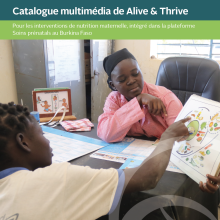
Catalogue multimédia de Alive & Thrive pour les interventions de nutrition maternelle
Alive & Thrive a mené une recherche formative pour mieux comprendre les déterminants, les facilitateurs et les obstacles à l’adoption d’interventions de nutrition maternelle pour les femmes enceintes et leurs nourrissons en Burkina Faso.
Toolkit
Oct 23 2023
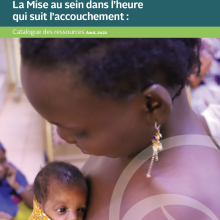
La Mise au Sein dans l’heure qui suit l’accouchement : Catalogue des ressources
Brief
Jul 27 2023
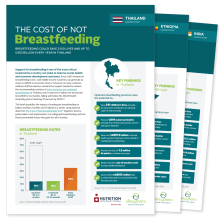
Cost of Not Breastfeeding Advocacy Brief Series (2022)
Not breastfeeding has significant health and economic impacts. The Cost of Not Breastfeeding Tool is an evidence-based modeling tool that uses open-access data to estimate the health and economic costs of not protecting, promoting, and supporting breastfeeding.
Brief
Dec 15 2022
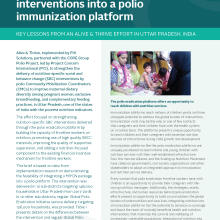
Integrating nutrition-specific interventions into a polio immunization platform
This brief, intended for implementers and researchers, presents lessons from the Alive & Thrive initiative’s experience integrating a maternal, infant, and young child nutrition (MIYCN) intervention through an existing polio er
Brief
Aug 16 2022
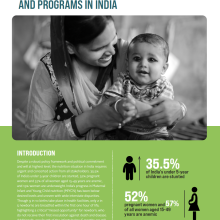
Leveraging professional medical associations to strengthen MIYCN policy and programs in India
In India, a large proportion of pediatricians, gynecologists, community medicine specialists, general practitioners, and nurses working across both public and private health sector belong to professional medical associations.
Brief
Aug 03 2022
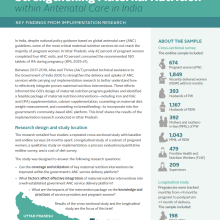
Strengthening Maternal Nutrition within Antenatal Care in India: Key findings from implementation research
In India, despite national policy guidance based on global antenatal care (ANC) guidelines, some of the most critical maternal nutrition services do not reach the majority of pregnant women.

